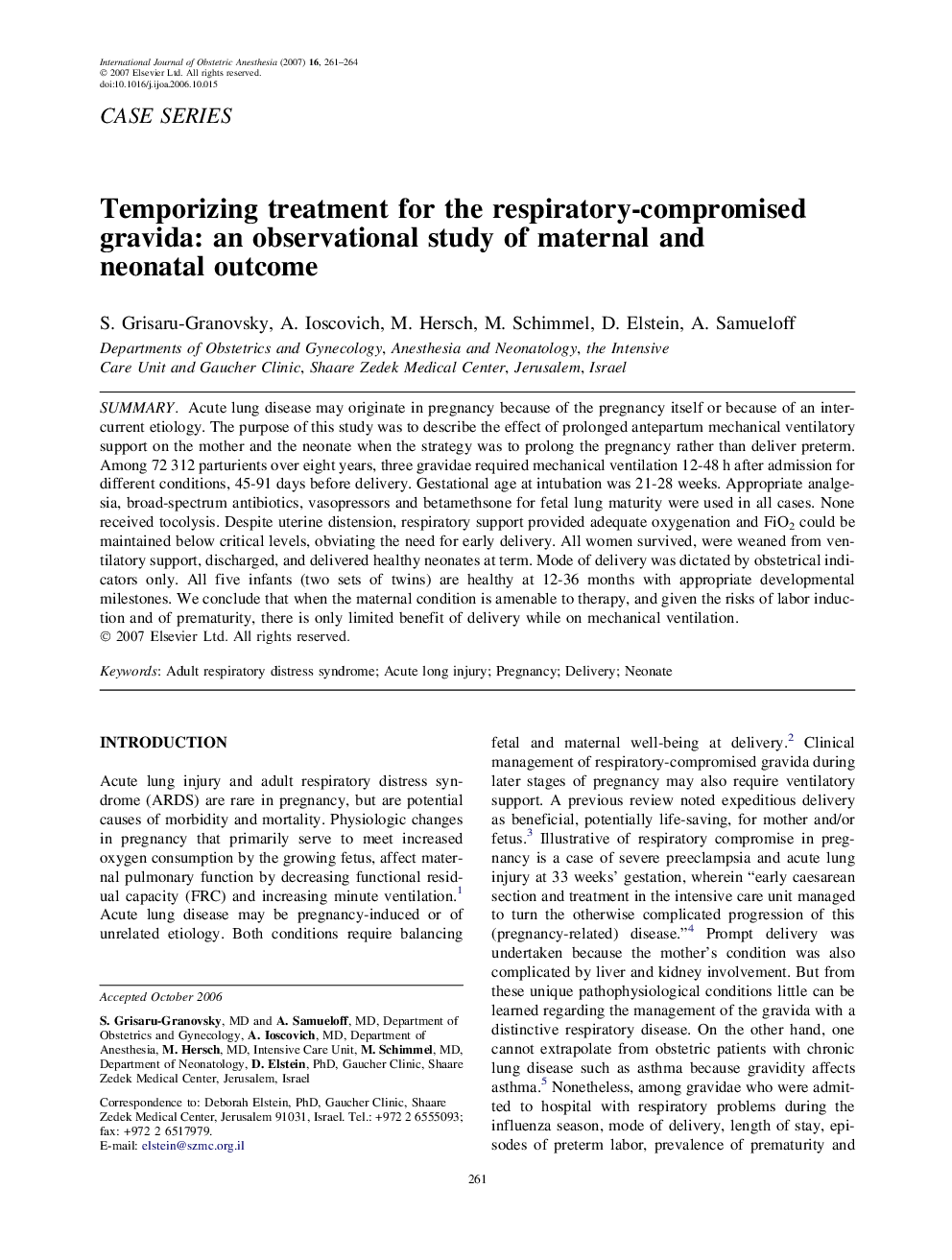| Article ID | Journal | Published Year | Pages | File Type |
|---|---|---|---|---|
| 2758593 | International Journal of Obstetric Anesthesia | 2007 | 4 Pages |
SummaryAcute lung disease may originate in pregnancy because of the pregnancy itself or because of an intercurrent etiology. The purpose of this study was to describe the effect of prolonged antepartum mechanical ventilatory support on the mother and the neonate when the strategy was to prolong the pregnancy rather than deliver preterm. Among 72 312 parturients over eight years, three gravidae required mechanical ventilation 12-48 h after admission for different conditions, 45-91 days before delivery. Gestational age at intubation was 21-28 weeks. Appropriate analgesia, broad-spectrum antibiotics, vasopressors and betamethsone for fetal lung maturity were used in all cases. None received tocolysis. Despite uterine distension, respiratory support provided adequate oxygenation and FiO2 could be maintained below critical levels, obviating the need for early delivery. All women survived, were weaned from ventilatory support, discharged, and delivered healthy neonates at term. Mode of delivery was dictated by obstetrical indicators only. All five infants (two sets of twins) are healthy at 12-36 months with appropriate developmental milestones. We conclude that when the maternal condition is amenable to therapy, and given the risks of labor induction and of prematurity, there is only limited benefit of delivery while on mechanical ventilation.
